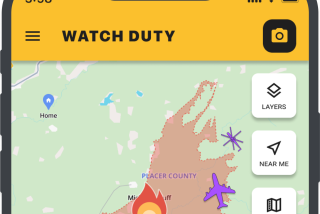Deal to Bring Foreign Natural Gas to U.S.
DARWIN, Australia — Phillips Petroleum Co. and El Paso Corp. are set to bet $5 billion that rising demand will make it profitable to ship natural gas from Australia to California.
Phillips and Woodside Petroleum Ltd., Australia’s second-largest oil company, have signed a tentative agreement with El Paso to ship about $20 billion of liquefied natural gas from northern Australia to the U.S. West Coast starting in 2004.
U.S. gas prices have more than doubled in the last two years because of a power crisis in California and a lack of new production. U.S. energy demand is expected to rise about 32% by 2020, spurring companies such as Exxon, the biggest oil company, and Phillips, the sixth-largest, to consider shipping gas from as far away as Alaska and Australia.
The El Paso gas for California will come from the $1.6-billion Bayu-Undan and the $1.3-billion Greater Sunrise developments in the Timor Sea. Bartlesville, Okla.-based Phillips is a partner in both projects, and operates Bayu-Undan. Woodside operates Sunrise, which also is part owned by the Royal Dutch/Shell Group.
Development requires a $520-million pipeline from the Timor Sea to Darwin on the northern Australia coast where a $1.3-billion LNG plant will be built. Phillips spokesman Bill Parker said the company is expected to update participants this week at the South East Asia Australia Offshore Conference in Darwin.
The project will need 10 to 12 ships to ship the gas 5,000 miles across the Pacific Ocean to the U.S. West Coast and El Paso is considering LNG terminal sites in California, and in Mexico’s Baja California. The ships alone will cost about $2 billion. El Paso spokesman Aaron Woods said El Paso will spend $1 billion of its own capital in five years.
“Negotiations [with Phillips] are underway and we expect to complete them by the end of the summer,” said Woods.
In New York Stock Exchange trading, El Paso shares rose 21 cents to close at $55.38 and Phillips fell 66 cents to close at $60.01.
Oil companies have been shipping liquefied natural gas to Asian markets for three decades. Natural gas in North America, though, has been so cheap until now that it was uneconomical to pay to chill it into a liquid for shipment. That’s changed with the California energy crisis--enough for Exxon to consider building a gas pipeline from Alaska.
El Paso, the biggest U.S. interstate gas pipeline owner, expects gas to account for 50% of the U.S.’ power generation in five years, compared with 10% a decade ago.
In California, where an electricity shortage has bankrupted the state’s largest utility, gas prices have been averaging $12.11 per million British thermal unit so far in 2001. Prices need to remain higher than 1990s levels to support El Paso’s plan and rival projects.
More to Read
Inside the business of entertainment
The Wide Shot brings you news, analysis and insights on everything from streaming wars to production — and what it all means for the future.
You may occasionally receive promotional content from the Los Angeles Times.










